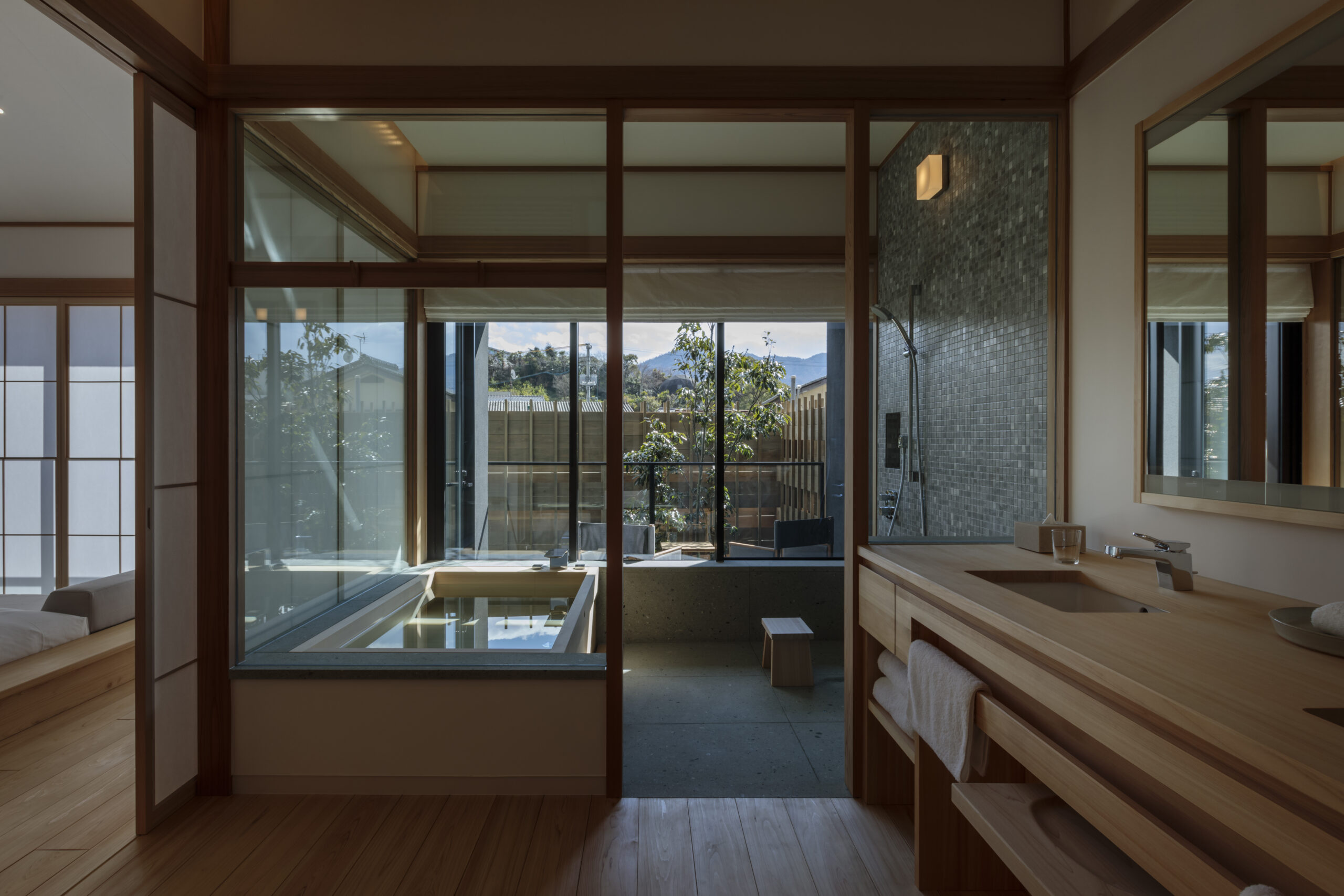Created by the founder of elevated hotel brand Aman, the Azumi Setoda brings together modern Japanese architecture, innovative cuisine and traditional bathing rituals. Ben Southan reports
The Azumi Setoda, located in the lemon farming heart of Japan on the island of Ikuchijima, is an elegant contemporary ryokan (Japanese guest house) created by Adrian Zecha, founder of luxury hotel brand Aman, and Naru developments.
Originally a 140-year-old estate belonging to the Horiuchi family, the Azumi can be found resting in a narrow street of fruit shops, Shinto shrines, izakayas (Japanese bars) and hidden restaurants.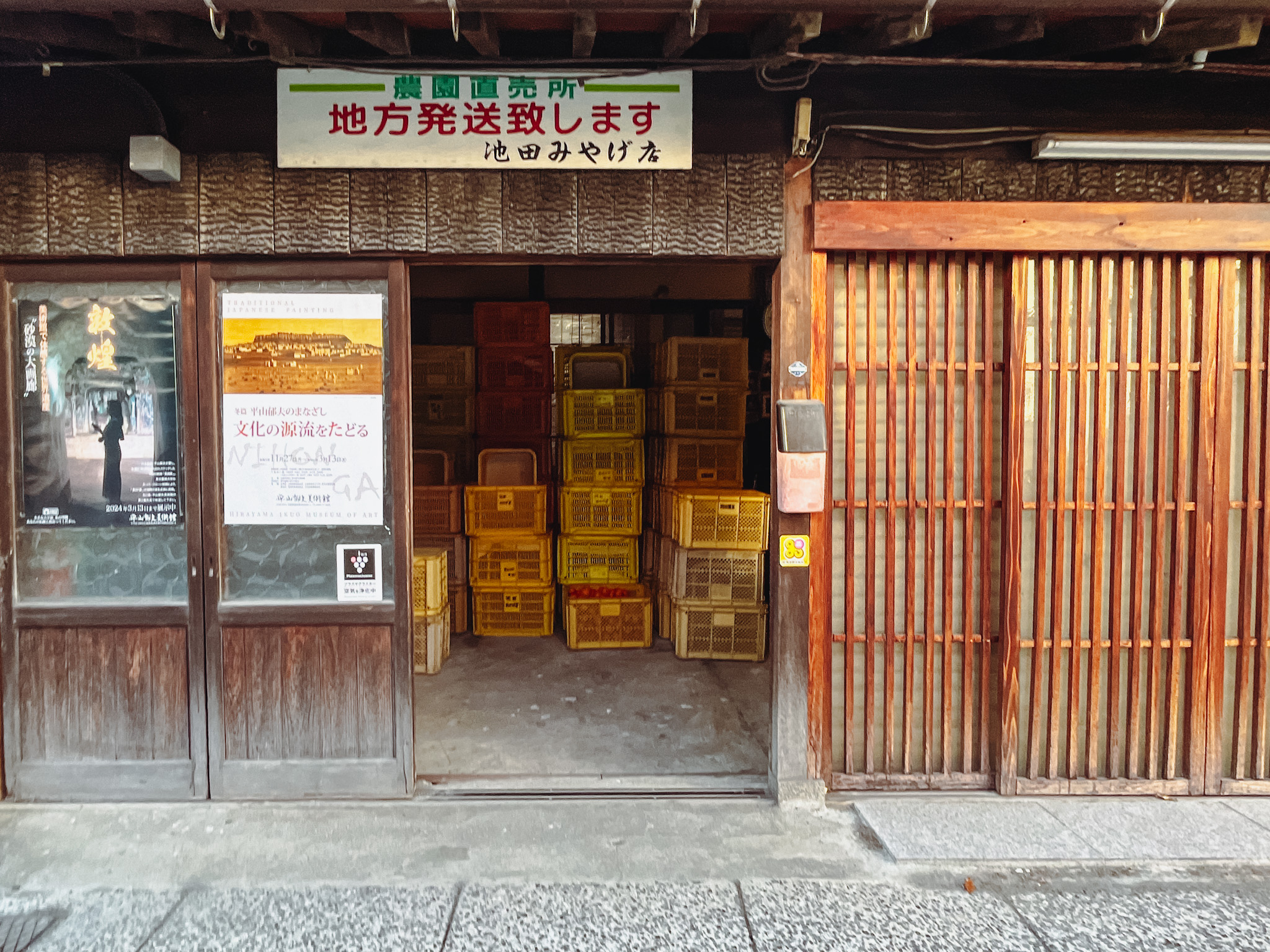 Its renovation was completed in 2021 under the direction of renowned Kyoto architect Shiro Miura who, specialising in traditional Sukiya style, focuses on the use of natural materials such as wood, paper and stone to create a harmonious, understated and subtly luminous aesthetic akin to that of the revered 16th-century tea ceremony.
Its renovation was completed in 2021 under the direction of renowned Kyoto architect Shiro Miura who, specialising in traditional Sukiya style, focuses on the use of natural materials such as wood, paper and stone to create a harmonious, understated and subtly luminous aesthetic akin to that of the revered 16th-century tea ceremony.
The Azumi has been carefully curated to honour a culture where historically an abiding sense of homeliness and tranquility are the primary qualities of a Japanese inn, and in Zecha’s Azumi Setoda we see the epitome of a modern-day ryokan.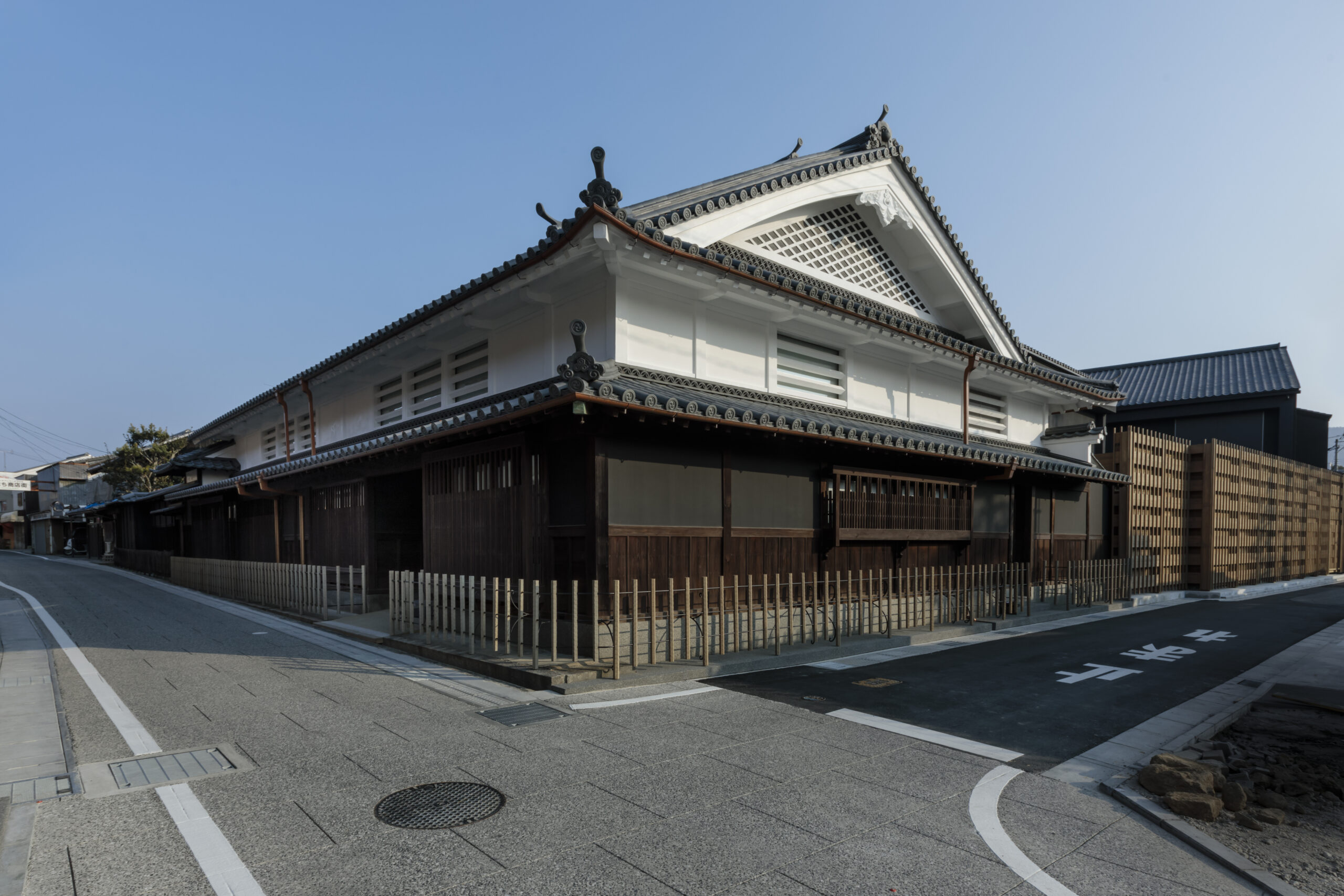 Stepping into the Azumi at night finds an entrance hall with high, shadowed ceilings supported by a network of dark wooden pillars and heavy, intersecting beams floating above a smooth concrete floor, which glows with reflected light from golden lamps in a hushed, hospitable atmosphere, mysterious and timeless, something like a holy place, a warm and inviting retreat.
Stepping into the Azumi at night finds an entrance hall with high, shadowed ceilings supported by a network of dark wooden pillars and heavy, intersecting beams floating above a smooth concrete floor, which glows with reflected light from golden lamps in a hushed, hospitable atmosphere, mysterious and timeless, something like a holy place, a warm and inviting retreat.
The spaces within the Azumi closely embody notions explored in the essay “In Praise of Shadows” by Junchirō Tanizaki, which seeks to describe “the collision between traditional Japanese interiors and the dazzling light of the modern age” and, among other things, compares the contrasting architectural aesthetics of the Eastern tradition to those of the West, each having developed with differing resources under different climatic conditions. 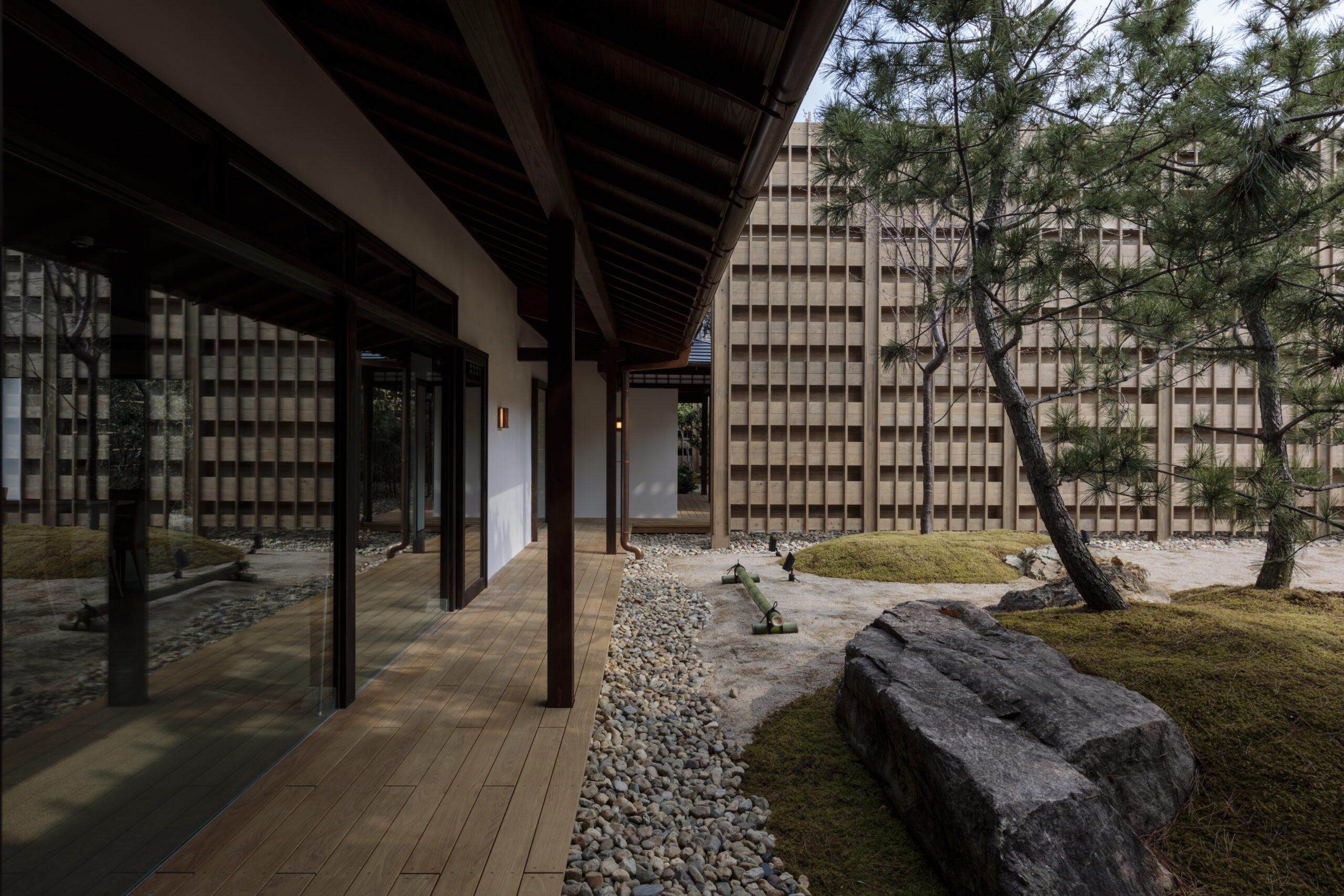
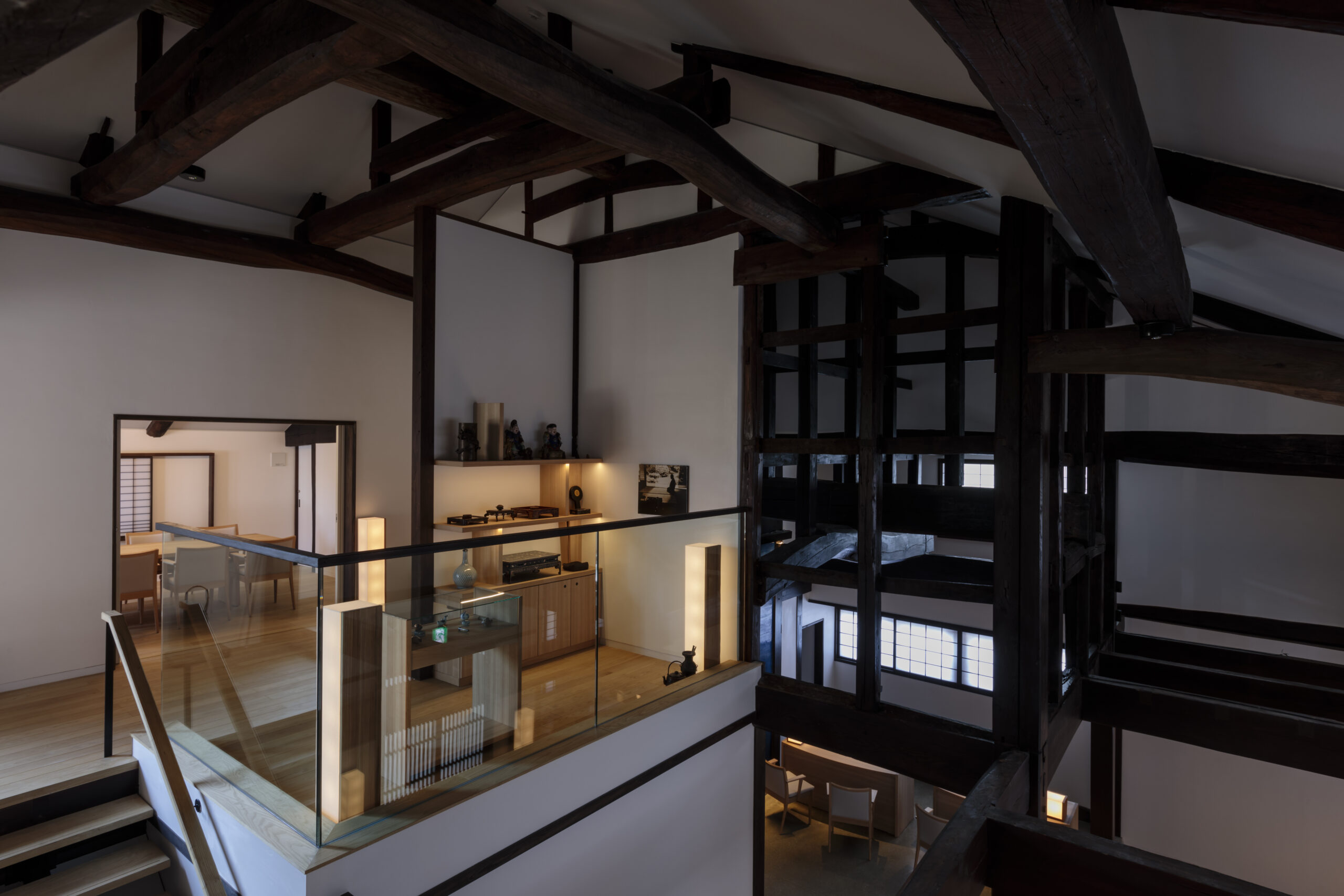 Tanizaki writes: “The fact that we did not use glass, concrete and bricks, for instance, made a low roof necessary to keep off the driving wind and rain. A light room would no doubt have been more convenient for us, too, than a dark room. The quality that we call beauty, however, must always grow from the realities of life, and our ancestors, forced to live in dark rooms, presently came to discover beauty in shadows, ultimately to guide shadows towards beauty’s ends.”
Tanizaki writes: “The fact that we did not use glass, concrete and bricks, for instance, made a low roof necessary to keep off the driving wind and rain. A light room would no doubt have been more convenient for us, too, than a dark room. The quality that we call beauty, however, must always grow from the realities of life, and our ancestors, forced to live in dark rooms, presently came to discover beauty in shadows, ultimately to guide shadows towards beauty’s ends.”
The design of the Azumi plays with these unfamiliar shadows to strong effect; black, slatted frames brace the windows in the dining room, translucent white shoji screens diffuse the light allowing it to pass only so far, the kakine cedar fence in the courtyard filters sunshine into dots and dashes which fall like glowing lines of morse code on the bedroom walls.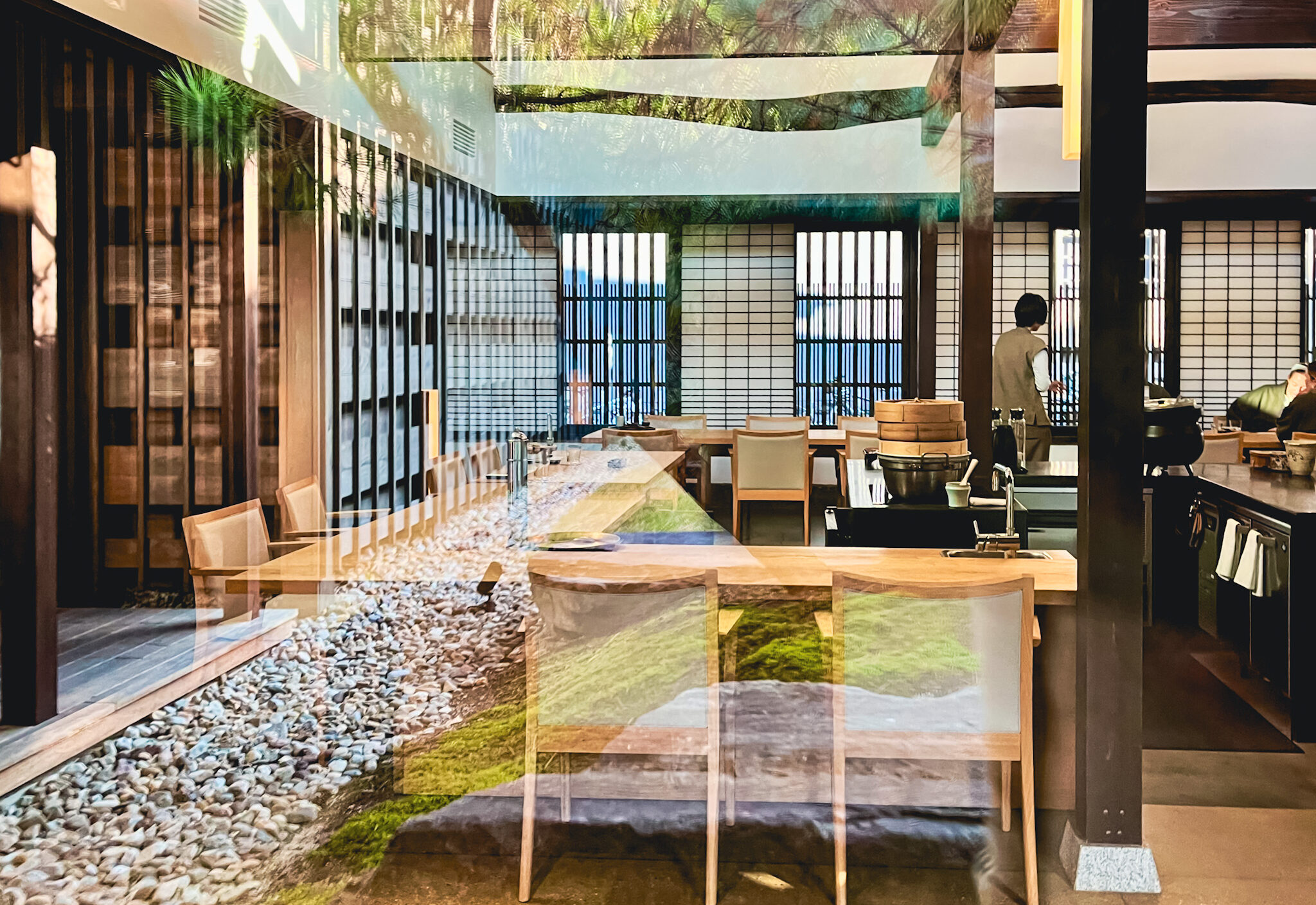 Pine, willow and cherry trees guardedly allow the day to pass through their leaves and the deep eaves of wooden walkways throw shade on the path to a glass-walled pavilion where the light find its way closely moderated by palms growing in the gravel around.
Pine, willow and cherry trees guardedly allow the day to pass through their leaves and the deep eaves of wooden walkways throw shade on the path to a glass-walled pavilion where the light find its way closely moderated by palms growing in the gravel around.
There are 22 rooms available over two floors in the guest pavilion each with a private garden or balcony. I stayed in a comfortable Niwa suite on the ground floor with warm, honey-coloured cedar flooring, a fragrant hinoki bathtub in a green granite wet-room with white shoji screens dividing the bedroom and bathroom.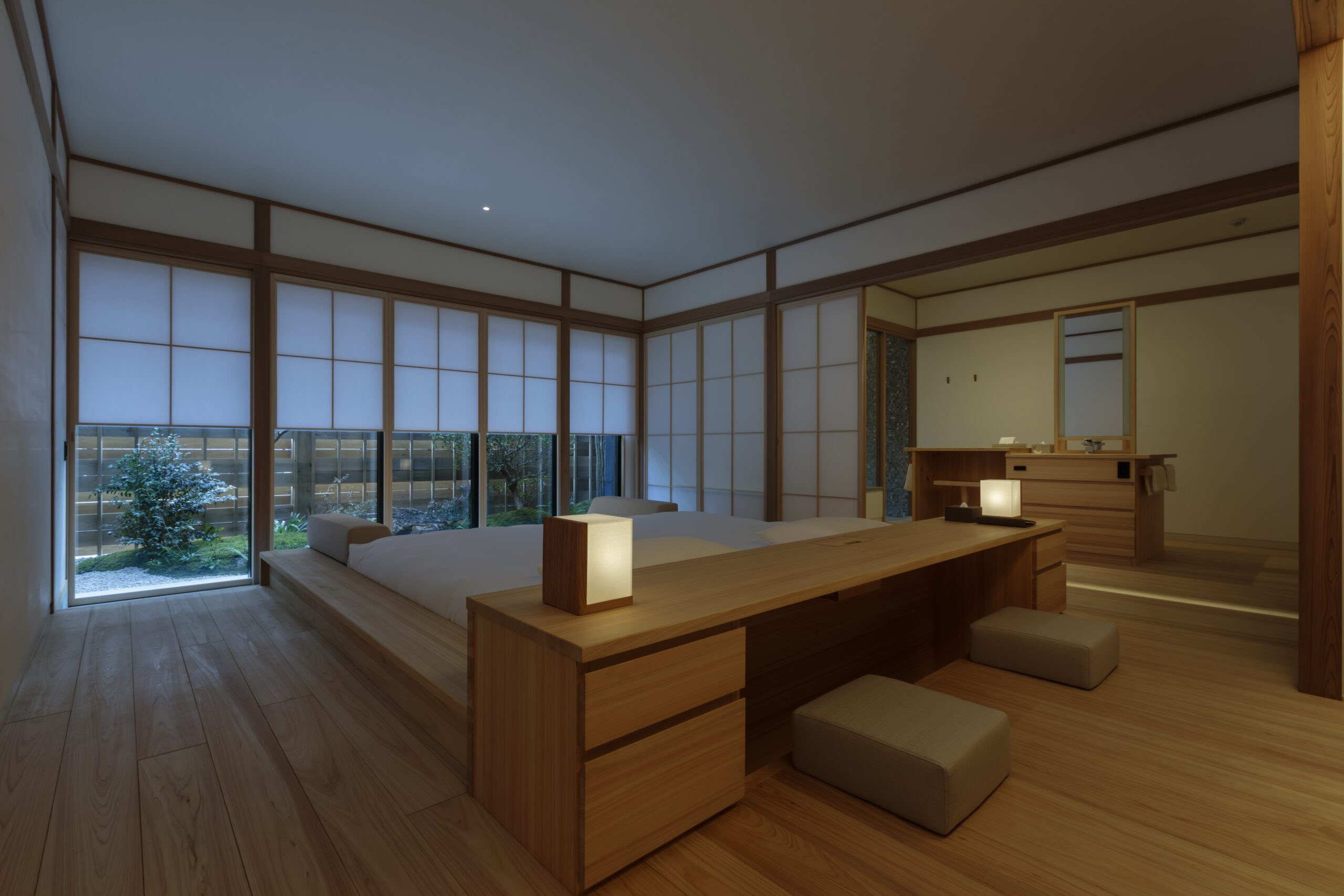
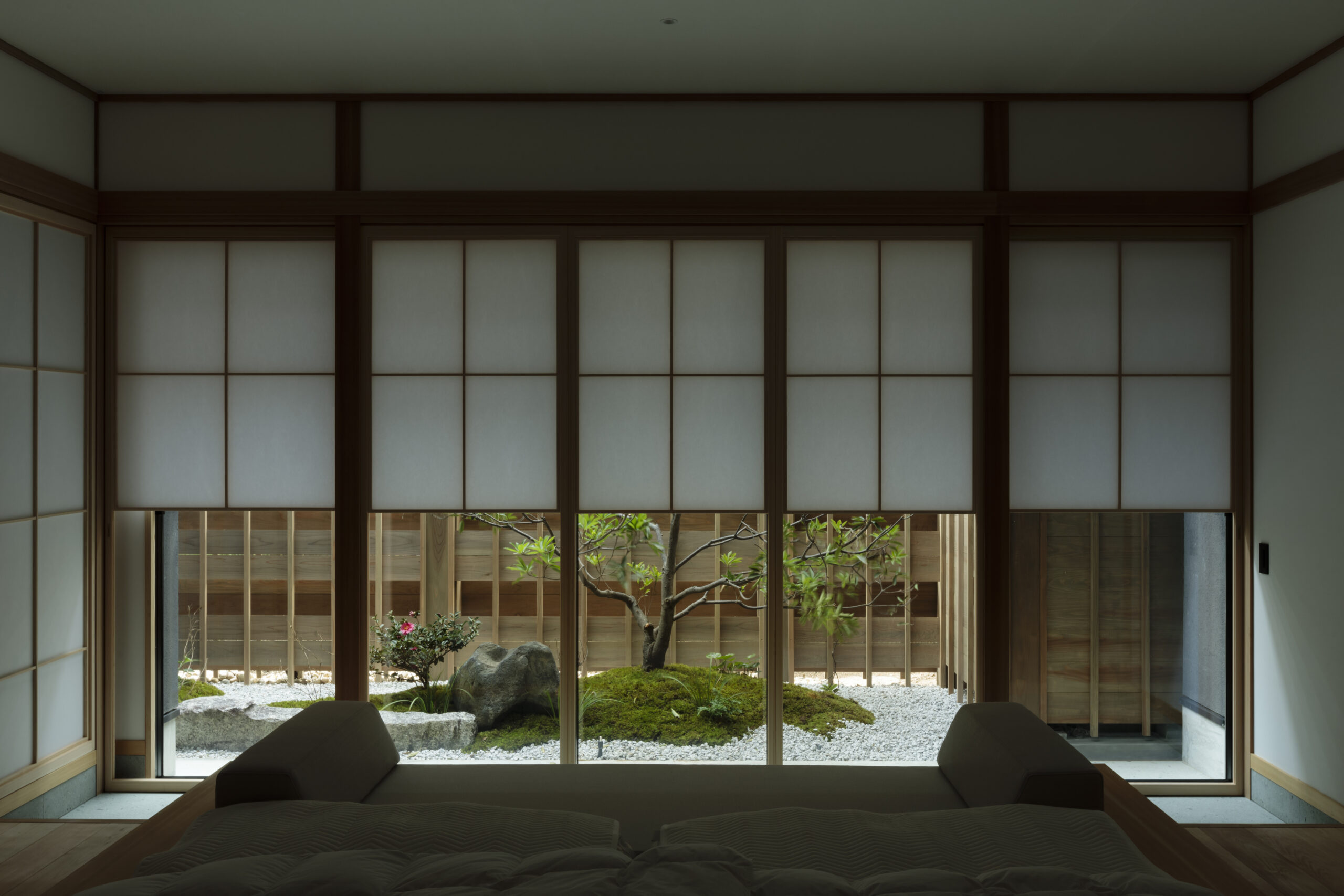
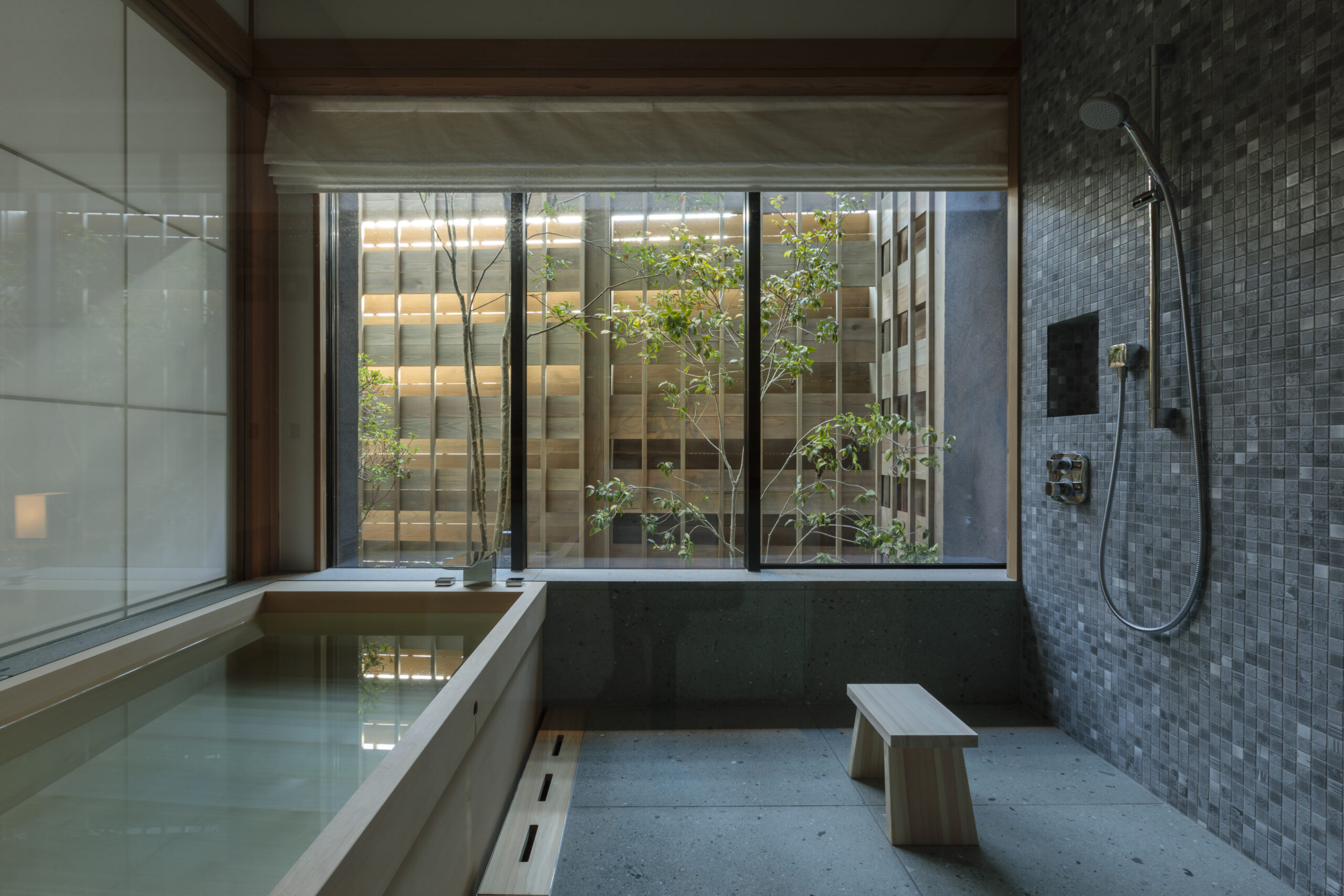 Every surface was warm and agreeable to the touch, every feature of the room pleasing to the eye and the function of every aspect deeply considered. A designer’s dream.
Every surface was warm and agreeable to the touch, every feature of the room pleasing to the eye and the function of every aspect deeply considered. A designer’s dream.

Choose from four room types: Niwa or Suzumi suites, each 50 sqm and suitable for two people, or the Sora-Suzumi and Niwa-suzumi, each 70 sqm and suitable for three people.
Bed and breakfast starts at ¥85,910 (£452) per room and the room includes all the amenities one might expect as well as several other thoughtful touches such as comfortable room wear, sandals and a haori jacket which one is invited to use when dining in the restaurant. The restaurant is run by head chef Akita who, having lived and worked in France, serves dinner in the French style on antique dinnerware inherited from the Horiuchi family estate. All ingredients are locally sourced and as a vegetarian I was both excited and grateful to find each dish as inventive and original as those served with meat or fish.
The restaurant is run by head chef Akita who, having lived and worked in France, serves dinner in the French style on antique dinnerware inherited from the Horiuchi family estate. All ingredients are locally sourced and as a vegetarian I was both excited and grateful to find each dish as inventive and original as those served with meat or fish.
As a starter we were served cold onion soup cleverly contained in an edible ball (which we were advised to eat it in one bite), cauliflower tart, chickpea fritters and aebleskiver (Danish pancake balls), followed by eight other courses each as fresh and delicious as the last.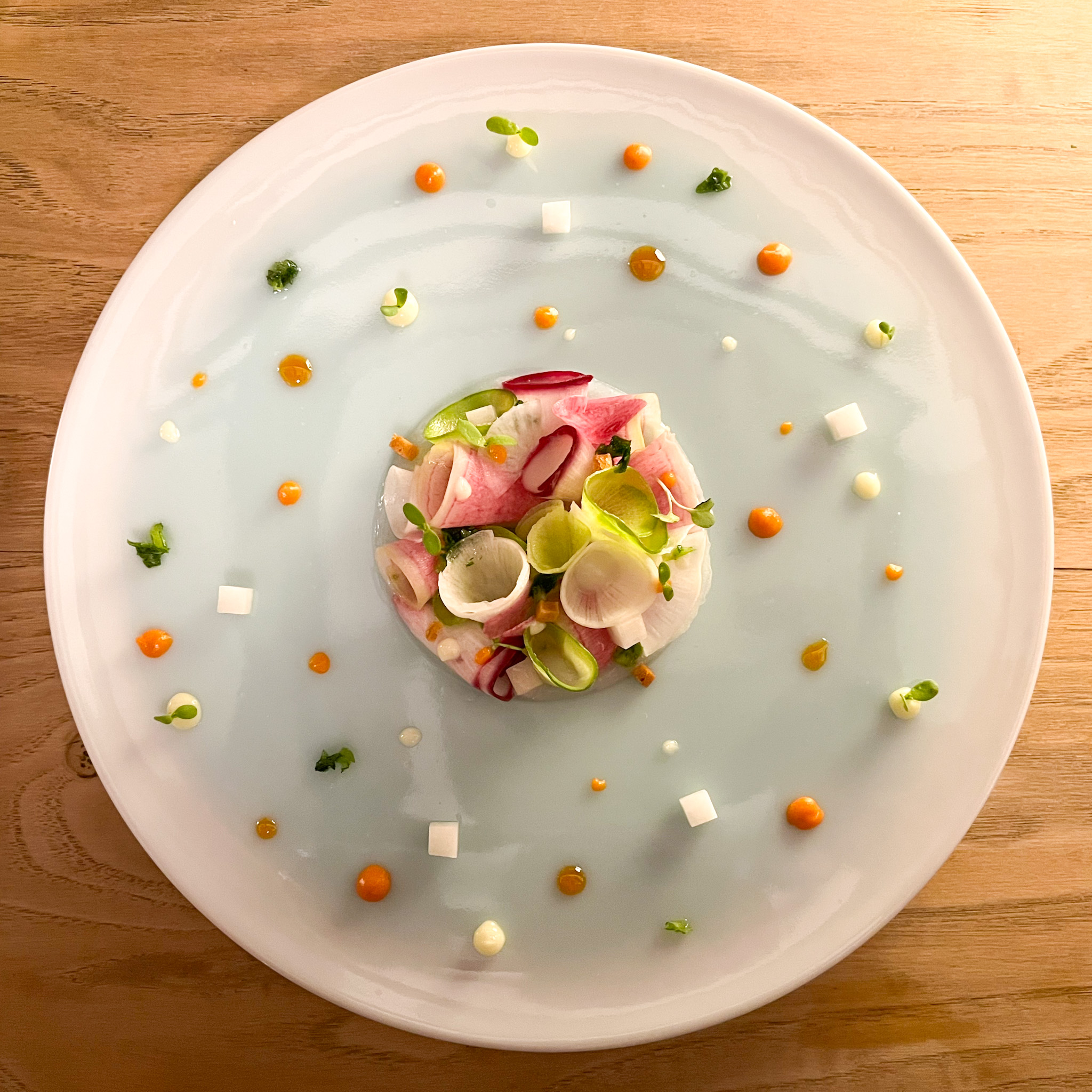 Mushrooms with espresso soup, coils and cubes of white turnip and pink radish laid out like a firework display, dark beetroot and bonito tartar, etc.
Mushrooms with espresso soup, coils and cubes of white turnip and pink radish laid out like a firework display, dark beetroot and bonito tartar, etc.
The stand-out plate that we all agreed was superb was the carrot course, which was unsurprisingly the chef’s signature dish. Described on the menu as: “Carrot – a plate of carrot with every single part of the carrot used”. It was probably the best carrot I’ll ever eat.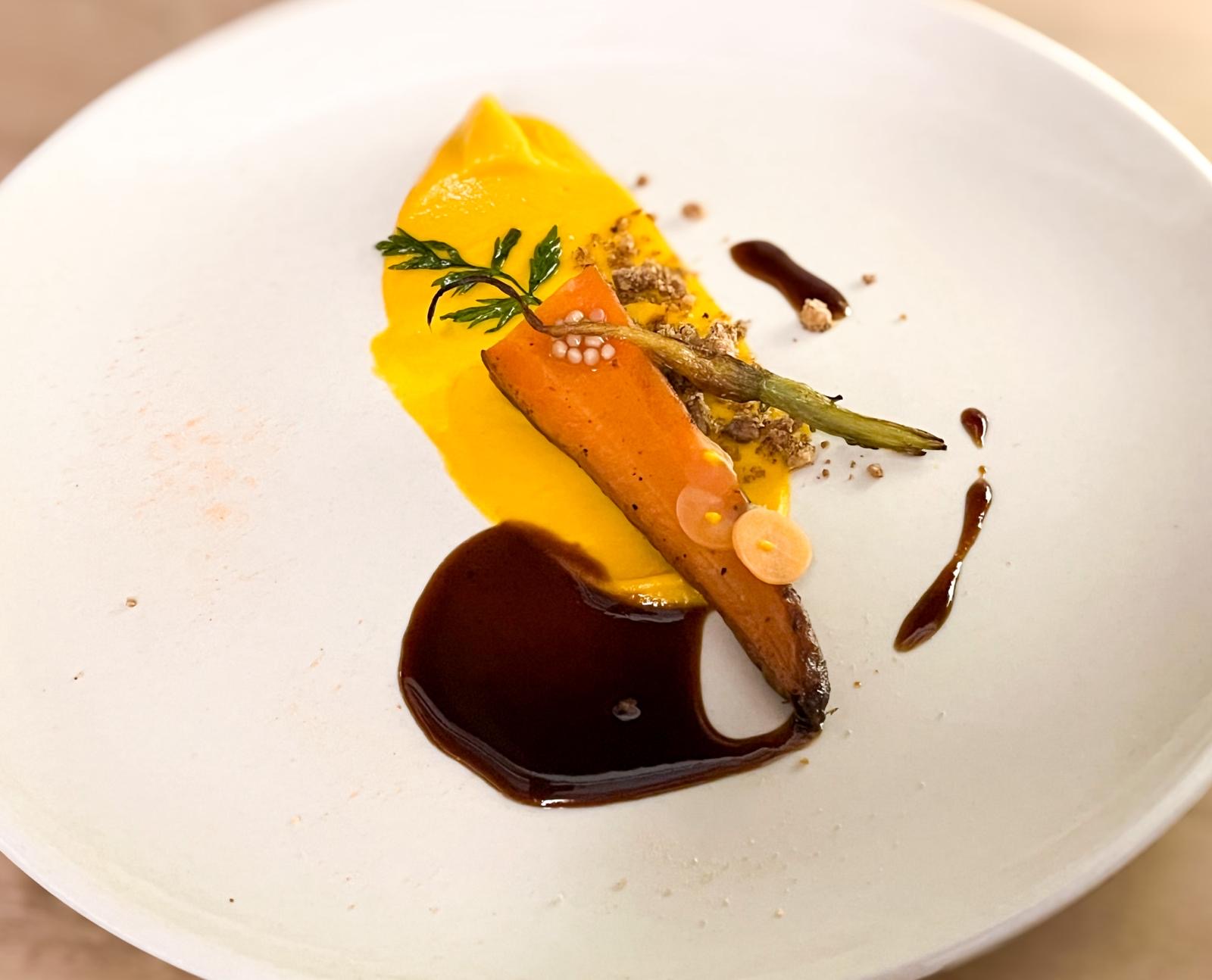 Dinner costs ¥18,150 (£96) per person with the option of wine and sake pairings from local producers in the Setouchi regoin for an additional ¥11,000 (£58).
Dinner costs ¥18,150 (£96) per person with the option of wine and sake pairings from local producers in the Setouchi regoin for an additional ¥11,000 (£58).
Dinner was followed by a private tea party with french pastries in the Azumaya pavilion before I headed across the street to sample the late night Yubune sento – the public bathhouse and sister property to the Azumi.
Developed in honour of the Horiuchi family’s commitment to community contribution, the sento is open to the public from 10am to 8pm with private access granted to hotel guests from 8pm to 10pm.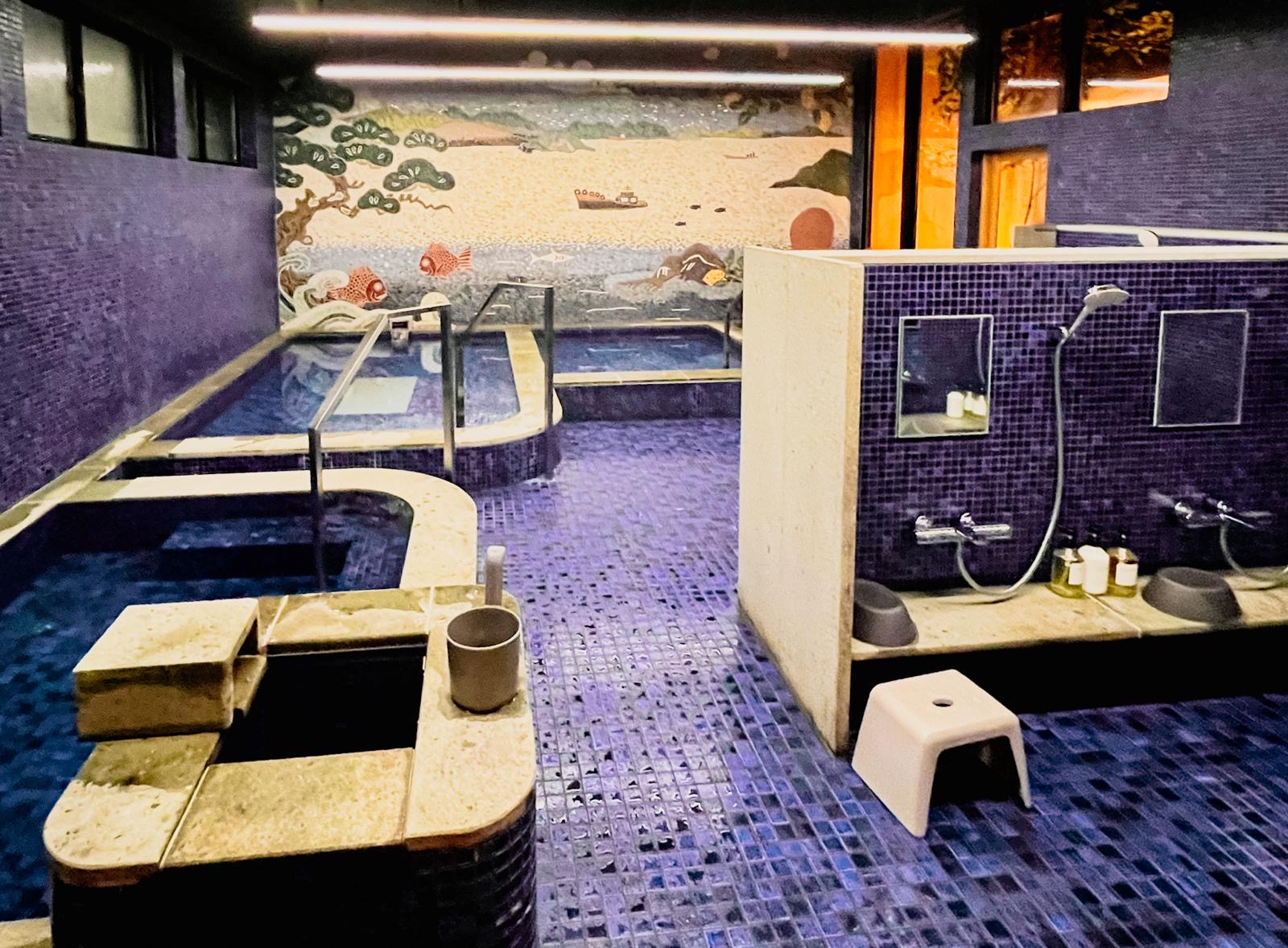 Entry is free for overnight guests and there are several large hot baths, a sauna and a cold bath. Body-wash, shampoo, conditioner and towels are provided and there are separate male and female rooms as one is obliged to bathe naked. It’s a beautiful space and well worth relaxing there after a long day on the road.
Entry is free for overnight guests and there are several large hot baths, a sauna and a cold bath. Body-wash, shampoo, conditioner and towels are provided and there are separate male and female rooms as one is obliged to bathe naked. It’s a beautiful space and well worth relaxing there after a long day on the road.
The next day we were treated to a traditional breakfast before taking off on a 17km round-trip bike tour following a section of the Shimanami Kaido cycling route which runs along the sea wall and passes through the Lemon Ravine before crossing the 1480-metre long Tatara bridge which spans the swirling whirlpools and white-tipped waves of the Seto inland sea.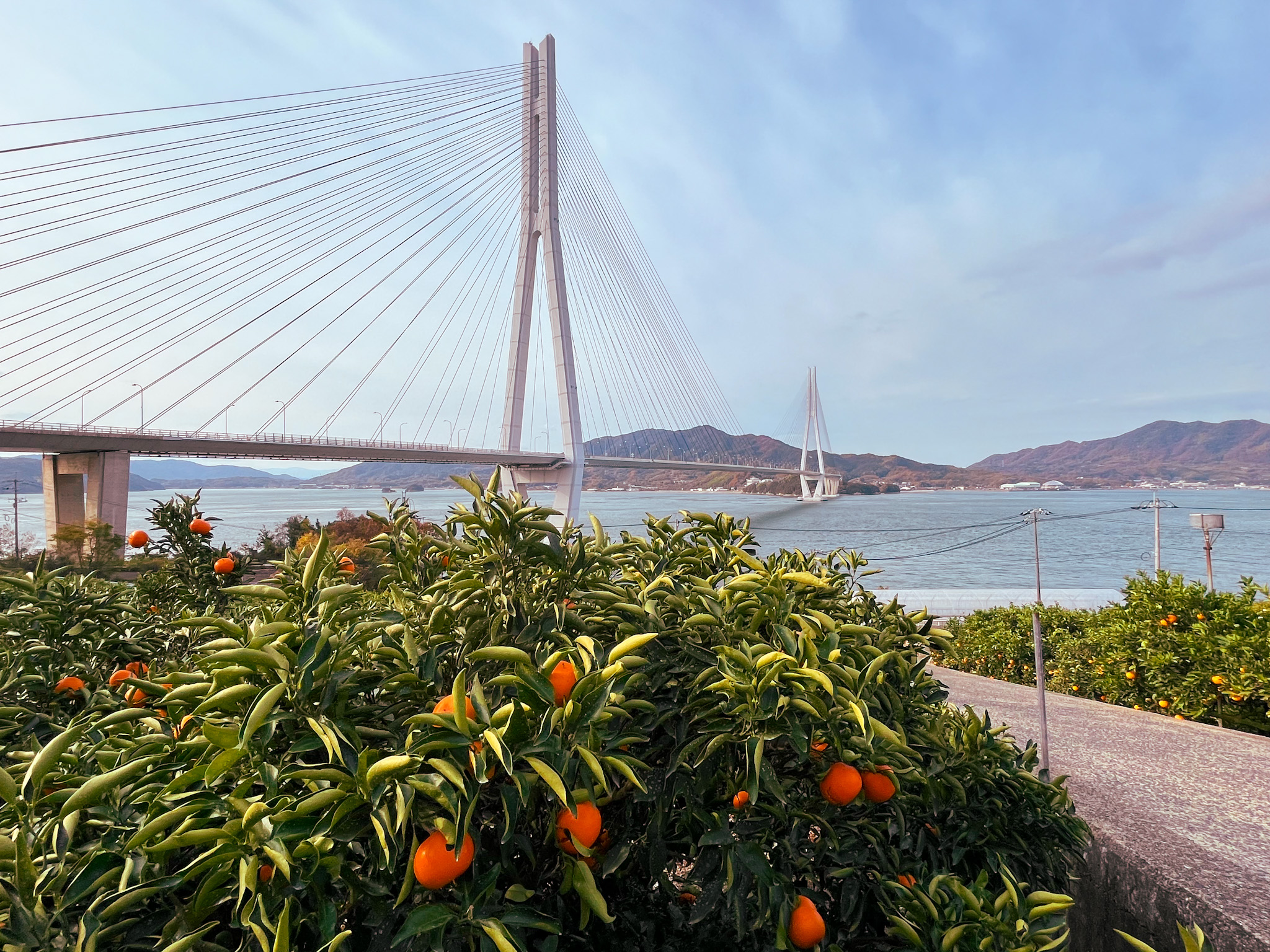 Our group stopped at the Michi-no-eki rest stop for some local satsuma moshi and an orange juice before cycling back across the bridge to Setoda sunset beach. The trip was an easy two hours there and back on electric bikes and is just a fraction of what the Shimanimi cycle path has to offer as it extends for 70km from Onomichi to Imabari.
Our group stopped at the Michi-no-eki rest stop for some local satsuma moshi and an orange juice before cycling back across the bridge to Setoda sunset beach. The trip was an easy two hours there and back on electric bikes and is just a fraction of what the Shimanimi cycle path has to offer as it extends for 70km from Onomichi to Imabari.
Many other experiences are on offer at the Azumi including wellness treatments, private yoga lessons, zen meditation at the Kojyo-ji temple, coffee workshops, walking tours, cruises, fishing, paddle boarding and kayaking as well as partaking in the famous orange and lemon harvests.
VERDICT:
The Azumi Setoda delivers an authentic yet luxurious ryokan experience rooted in true Japanese style, where traditions of hospitality, artistry and architecture combine to set the bar high for those who wish to follow in its shadow.
BOOKING:
Japan Airlines has twice daily London Heathrow – Tokyo return flights from £962.

